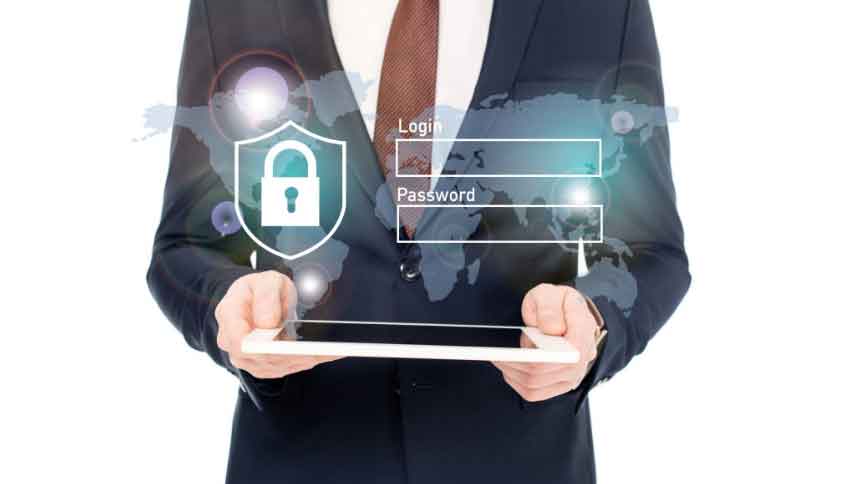Show:
Startup Tips: How to Develop Site Security Strategies
Security is a critical issue for any business, but it can be especially challenging for startups. You need to ensure that your site is secure from hackers and other online threats, but you also don’t want to spend too much money on security measures that may not be necessary. In this blog post, we will discuss some tips for developing site security strategies in a startup. So, if you are starting or have been in business for a while now, these tips should be helpful to you. Let’s get to the list.

Scan your Website for Vulnerabilities
The first step to any security strategy is scanning your site for vulnerabilities. It would be best to do this regularly, and many tools can help you do this easily. You can opt for an automated vulnerability scanning tool, or you can do it manually. If you choose to use an automated vulnerability scanner, it will take care of the scanning process and notify you when vulnerabilities are found on your site.
A pen test is also a good idea if you want to see how hackers might try to attack your business. This type of testing involves running multiple attacks on the site to see what results come out. You should make sure that you are using a reputable company for this type of testing because some companies may not be as reliable as others when executing these types of tests.
Keep Your Software Up-to-Date
One of the best ways to protect your site from vulnerabilities is to keep your software up-to-date. This means keeping your operating system, web browsers, and other software programs updated with the latest security patches. Hackers will often target older versions of software because they know that these versions may have vulnerabilities that have not been patched yet.
One way to keep your software up to date is to set up automatic updates on your computer. This way, whenever there is a new security patch available for one of your programs, the update will be downloaded and installed automatically without you needing to do anything at all. Another great thing about setting up automatic software updates is that it helps keep hackers out by limiting their access points into your system.
Use Strong Passwords
Another important way to protect your site from hackers is by using strong passwords. This means choosing passwords that are difficult to guess and not easily cracked. You should also use different passwords for each of your accounts, and you should never share your passwords with anyone else.
One way to create strong passwords is to use a password manager. A password manager is a program that helps you store all of your passwords in one place. This way, you only need to remember one master password, and you will keep the rest of your passwords in the password manager. This is an excellent solution for people who have trouble remembering multiple passwords.

Install a Firewall
A firewall is another crucial security measure that you can install on your site. A firewall helps protect your computer from unauthorized access, and it can also help prevent malware from infecting your system. There are many different types of firewalls available, so you should choose one that best suits the needs of your business.
When installing a firewall, you should make sure that it is configured correctly and up to date. It would be best if you also were sure to keep your firewall software updated with the latest security patches. This will help ensure that your firewall provides the best possible protection for your system.
Use a Secure Hosting Service
Hackers can use many different methods to gain access to your site, and one of the most common is through web hosting services. There are several different types of web hosting services that you can choose from, but there are a few things that you should look for when selecting a secure host.
You want a provider who offers strong security measures, and you also want a provider who will be able to help protect your site from any vulnerabilities that might arise. Some of the most common security measures available with web hosting services include SSL certificates, firewalls, VPNs, SSH tunnels, malware detection software, and more. If you use one of these services for hosting your website, you can be sure that your site is safe from hackers and other online threats.
Encrypt Your Login Pages
When hackers gain access to your site, they will often use it as a base of operations. They can then launch other attacks against your system or steal sensitive information from you. One way that you can prevent this is by encrypting all of the login pages on your website.
This means any page that requires users to input their usernames and passwords should be encrypted. This will help to keep your login information safe and secure from hackers. You can encrypt your pages by using a tool like SSL encryption or an SSH tunnel.
Keep Your Site Clean and Decluttered
When you have a lot of content on your website, it can be more difficult to keep track of everything. This can make your site an easy target for hackers and other online threats. One way to help prevent this is by keeping your site clean and decluttered.
This means removing any unused or unnecessary files from your server, and it also means deleting any old accounts that you no longer use. You should also ensure that all of your passwords are secure and up to date so that no one can get into your site without proper authorization.
Backup your Data
One of the most important things that you can do to protect your site from hackers is to backup your data. This means making copies of all of your website files and storing them in a safe place. If something happens to your website, you will have a copy of your data to restore it with.
Many web hosting providers offer backup services as well. This is a great way to make sure that your data is always protected, and it also gives you peace of mind knowing that if something does happen to your website, you will be able to restore it quickly.
There are many different things that you can do to protect your site from hackers. These include setting up automatic updates, using strong passwords, installing a firewall, and using a secure hosting service. You should also backup your data regularly to ensure that your website is always safe and protected. When you use these tips, you can ensure that your site is safe from hackers and other online threats.

 Return to Previous Page
Return to Previous Page








